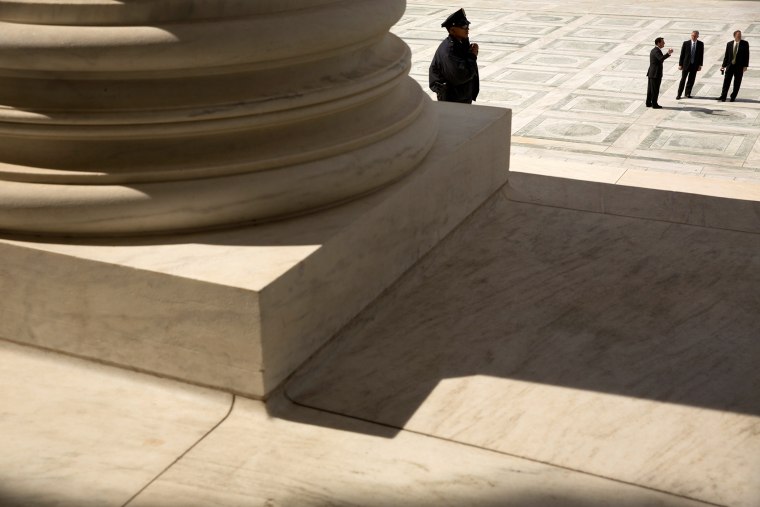The idea of "packing" the Supreme Court hasn't been a subject of real political debate in recent generations, but it's starting to gain traction among some Democratic presidential candidates, who've expressed some interest in dramatic judicial reforms.
Donald Trump publicly addressed the issue for the first time yesterday -- the president, not surprisingly, is against court packing, at least until he changes his mind -- and some congressional Republicans are eyeing a new measure to end the debate altogether.
Rep. Mark Green (R-Tenn.) on Tuesday announced he will introduce a constitutional amendment this week to limit the number of Supreme Court justices to nine after several Democratic presidential candidates have floated the idea of expanding the high court's bench."This Thursday, I will be introducing a constitutional amendment that would limit the number of Supreme Court justices to 9 -- the number of seats since 1869. The Supreme Court must remain a fair and impartial branch of government not beholden to party," Green said in a statement."Schemes to pack the court are dangerous to the Founders' vision of an independent judiciary that serves as a check on both the Executive and Legislative branches of government," he continued.
Sen. Marco Rubio (R-Fla.), warning of "further destabilization of essential institutions," announced yesterday that he too will introduce a constitutional amendment that would keep the high court at nine justices.
Amending the Constitution is extremely difficult, and the odds of Congress ratifying such a measure anytime soon are poor. But so long as some GOP lawmakers are eager to pick this fight, it's worth taking a moment to set the record straight about a couple of things.
First, though it hasn't happened in a very long time, Congress has altered the size of the Supreme Court on several occasions. In fact, Mark Green's reference to "the Founders' vision" is a curious one: The New Republic recently published a piece noting what transpired after the presidential election of 1800: "The outgoing Federalist Party ... reduced the size of the Court from six to five to keep Jefferson from filling an anticipated vacancy. Once Jefferson's Democratic-Republican Party was firmly in power, they increased the size back to six justices, then to seven, to allow Jefferson to appoint new justices."
More than a half-century later, ahead of the Civil War, Abraham Lincoln and congressional Republicans expanded the Supreme Court to 10 justices in order to help protect the White House's agenda.
Similar plans didn't go well when FDR tried a similar gambit in the 1930s, but let's not pretend contemporary chatter about this in Democratic circles is wholly without historical precedent.
Second, let's also not forget that as recently as 2016, several Senate Republicans said they'd block any Supreme Court nominee, regardless of merit, if Americans elected a Democratic president. If that meant leaving the high court with eight justices -- or fewer -- for an indefinite period of time, so be it.
I don't recall hearing any Republicans expressing concern at the time about the importance of having a nine-justice bench, or the "destabilizing" effects of anything different.
